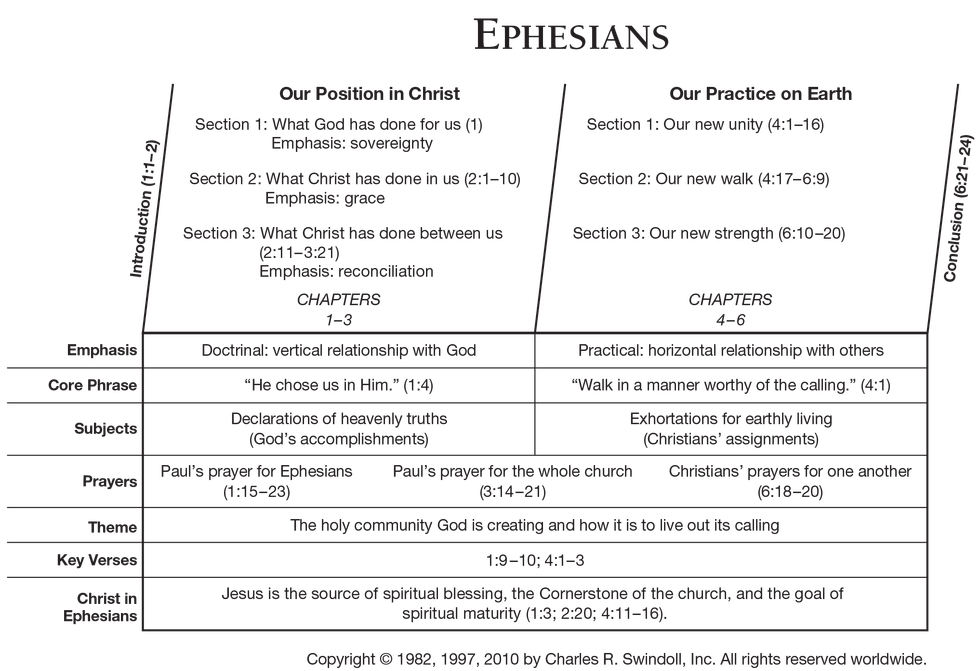In this new series, I plan to talk about the armor of God. Since the armor of God isn't mentioned until the very end of the book, I think it would be best to start by looking at the verse's context. Who wrote this letter and why? What's the point?
Apostle Paul wrote the Letter of Ephesians around 60-61AD. Unlike in 2 Corinthians or Galatians, he doesn’t write about his personal life, nor do we see him addressing specific moral issues surrounding the church, or the body of Christ.
Instead, Ephesians deals with an overview of what is means to be a practicing Christians who is filled with faith. He gives instruction and insights on salvation, grace, and unity in Christ (Ephesians 1-4), as well as explains how our actions matter and can affect our relationships—with ourselves, with our spouses, with our children and/or parents, with our co-workers (Ephesians 5-6).
Ephesians can be read in two parts.
The first three chapters discuss our position in Christ (what God has done for us by being a sovereign King; what Christ has done in us by being out saving grace; and what Christ has done between us to allow reconciliation). And the last three chapters, discuss the results of the Holy Trinity’s actions: our new unity (Ephesians 4:1-6), our new walk (Ephesians 4:17-6:9), and our new strength (Ephesians 6:10-20).
Paul mentions that this new life is not easy. When Paul acknowledges spiritual warfare, he says that our struggle goes beyond avoiding a mortal death but avoiding a spiritual death: “For we do not wrestle against flesh and blood, but against the rulers, against the authorities, against the cosmic powers over this present darkness, against the spiritual forces of evil in the heavenly places” (Ephesians 6:12). The caveat to this is, if one dies spiritually, they won’t be able to avoid fearing a physical death.
Why?
On top of maintaining his spiritual walk, Paul faced being persecuting with other Christians in Rome. In fact, Paul’s letter was sent with the help of Tychicus and Onesimus because Paul was enduring his first imprisonment in Rome.
But how did he not let the darkness in his life affect his spiritual life?
Paul could have walked away.
Despite Rome’s politically dark state and a seemingly hopeless moment in Paul’s life, Paul did not stop sharing the gospel. Paul’s letters during his imprisonment lead to writing the saints of Ephesian, along with three others (sent to Philippians, Colossians, and Philemon), to be coined as the Prison Epistles. Additionally, he repeatedly mentions that he is a prisoner of God. He refused to relinquish his Christian title (Ephesians 3:1; 4;1). Paul’s small remarks are small, but powerful in terms of witnessing.
So, how does a Christian maintain their new unity, new walk, and new strength in the midst of enduring this dark world, or a hopeless situation, or spiritual warfare—all of which resembles a dark prison cell— like Paul?
In chapter 6, Paul mentions the Armor of God as having 6 pieces that will give Christians the weapons they need to combat spiritual warfare, so they may not be imprisoned by the flesh (Ephesians 6:12).
In the coming weeks this series will take a closer look at each piece of Armor: the belt of truth, the breastplate of righteousness, the shoes of peace, the shield of faith, the helmet of salvation, and the sword of the spirit and how it might be used to remain strong in Christ (Ephesians 6:13-19).




















